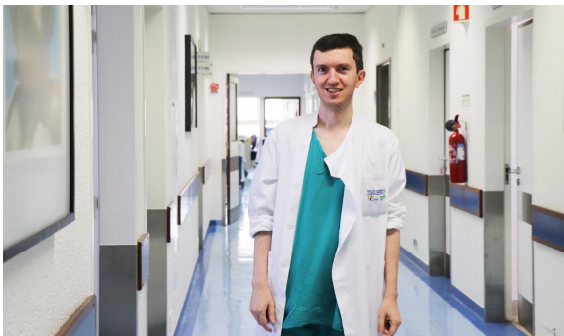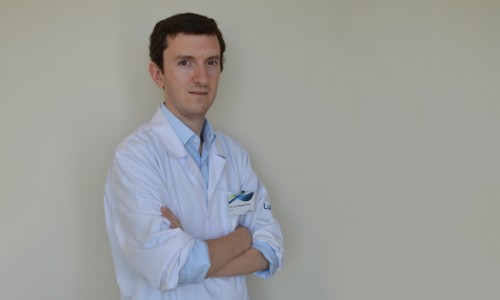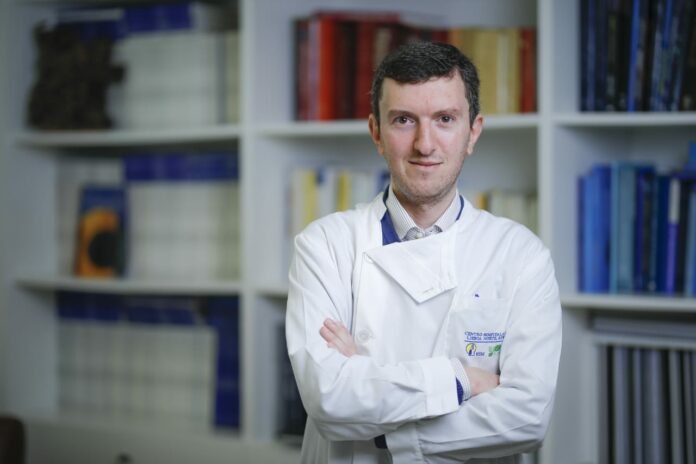Dr. Luís Abegão Pinto is the Head of the Glaucoma Clinic, Department of Ophthalmology, Lisbon North University Hospital Centre. He is also the Assistant Professor of Ophthalmology at the Faculty of Medicine of Lisbon University, Portugal. He has authored or co-authored 88 indexed, peer-reviewed papers in Glaucoma, with a primary interest in non-IOP risk factors and glaucoma surgery.
In 2005, Dr. Luis Abegão Pinto graduated with a Doctor of Medicine (MD) degree from Lisbon University. In 2012, he obtained his PhD in Ophthalmology from the same institute. Moreover, he is a member of the Executive Board of the European Glaucoma Society since 2018.
Career Choices
Young individuals have multiple options to choose from during high school. They aim toward scoring well in class and those who are able to achieve good grades have a tremendous number of options to choose from. Teenagers have brilliant minds and career ideas. They don’t prefer opting for a cliche job, looking forward to doing something out of the ordinary. Furthermore, they want a career that is exciting and challenging.
I chose medicine 20 years ago in Portugal. I was in my late teens. I had also applied for economics. However, I can’t imagine myself doing economics. Today, I realise choosing medicine is one of the nicest decisions I have ever made. Also, I don’t do dull job with repetitions.
Dr. Luis Abegão Pinto
From ENT to Ophthalmology

Dr. Luis Abegão Pinto was very passionate about the field of ophthalmology. Even after practising as a resident for ENT for 2 years, he did not hesitate before switching to ophthalmology! Doctors are passionate about their work. Dr. Luis is also a workaholic and that’s what motivates him to wake up every morning to go to work; him dedicated to working on what he loves with full conviction. Dr. Luis does not mind his hectic routine because that’s what he always wanted to do.
Being an ophthalmologist, I have a busy weekly schedule. On Mondays I do a clinic, on Tuesdays I do surgery and post-op care, on Wednesdays I do emergency shifts, on Thursdays I teach and on Fridays I have meetings and sometimes surgery. When I do surgery, I question the efficiency of my work. For me, patient care and satisfaction are a priority. Every procedure and surgery is a part of a big puzzle. I have been in this position for 5 years now and this puzzle keeps me interested in my work. In fact, I was a resident for ENT for 2 years and then I realised that it is not for me. Too much blood!
Dr. Luis Abegão Pinto
Surgeons and ORs
Surgeons love being in the OR despite the tense and stressful atmosphere. They consider it their second home and choose the field because they get to save lives and alleviate the pain of those who are suffering. it gives them eternal peace and satisfaction because it is their way of serving the patients. Moreover, it is a skill that they cherish throughout their practice.
When I am in the OR, it is different. It is quiet and peaceful. It is just me and the patient’s eye. I can listen to the music and focus on eye surgery. It is stressful but at the same time, I know it is just me and the patient with no interruptions. Now, this is something I can do and what I like to do. As most surgeons are perfectionists, I want my work to be perfect too. When I complete the surgery and close the patient, the feeling is euphoric. In OPD you take satisfaction home at the end of the day. Surgery is different. Surgery brings you a sense of achievement and satisfaction like nothing else.
Dr. Luis Abegão Pinto
Workplace Relationships
Dr. Luis Abegão Pinto highly encourages and admires family support. Doctors want to go back home to their families and relax after working continuously for days. Their family is a source of calmness for them and their mental health, helping them ease their mind before the next day starts. Moreover, a similar applies to workplace relationships. The environment should be healthy and colleagues should be co-operative with each other.
Family is important but at the same time, you must build a strong trust relationship with your colleagues at the workplace because that is where you spend 60 hours. In a stressful working environment, family can’t help you. Co-operative and healthy workplace relationships are your utmost safety against stressful workplace.
Dr. Luis Abegão Pinto
Workplace Environment
The environment of a workplace matters a lot. It has a deep impact on the workers’ physical and mental well-being. In a toxic work environment, doctors feel more exhausted making the chances for burn-out much higher. Doctors work best in a peaceful and understanding working environment. Getting the appreciation and recognition they deserve is always beneficial and motivates individuals to do better.
“I changed my workplace thrice. Doctors are workaholics. You ask them to work for 80 hours a week and they will. If due to any reason you don’t want to continue working there remember you are not stuck. Change your workplace. The beauty of medicine, especially in the European Union is that I could work in Sweden today and Greece tomorrow. In the end, it all comes down to your likelihood towards the place you work. If you are required to work 80 hours a week then work at a place with good conditions where you can have coffee with a group of friends. If you can’t change the stressful environment of your workplace then don’t give 80 hours a week there. You will end up with grey hair for no reason!”
Dr. Luis Abegão Pinto
Exclusive Take on Interference of COVID-19 and Ophthalmology

Ophthalmology has its specificities. Elderly patients are the main focus of ophthalmology. They are prone to cataracts, glaucoma, and Age-Related Macular Degeneration (ARMD). Furthermore, this particular age group was afraid the most during the COVID-19 pandemic.
The initial response of the elderly was not to go to hospitals for treatment, perceiving it as an infected place. It was difficult for us to convince them that they needed surgery. In the first 3-4 months, our ERs were empty because people didn’t want to go to hospitals even if they had a retinal detachment. They would rather lose one eye over two lungs! It was a learning experience for us as well because ophthalmologists were among the first people to contract the disease as they were quite face-to-face with their patients.
If patients were infected, we were infected. So it was a tricky learning part. With time safety equipment came along. Masks and PPE provided us protection and we felt secure as professionals. Ophthalmology has another benefit. It is a high-tech speciality which means we can build up our own virtual clinics. I set up a virtual clinic so now the elderly could go to hospital and do exams at the appointed time. After 3-4 weeks, the patient would receive a letter from me about my analysis, recommendation, prescription, opinion, and follow up details. In this technique, we lost physical touch but virtual clinics helped control patients’ conditions. All scheduled patients were being seen with high-tech virtual clinics.
Dr. Luis Abegão Pinto
Dr. Luis’s Area of Interest
Glaucoma is his primary area of interest
Glaucoma is a gradually progressive disease similar to Alzheimer’s and Parkinson’s. Screening is very important for high-risk individuals. I usually give my patients examples of blood pressure and stroke. You may have high blood pressure but that does not mean you will get a heart attack. Similarly, you may have high intraocular pressure (IOP) but that does not mean you will go blind. As long as you take medicines for HTN and high IOP you will be fine. There are surveys where Americans claim that they would rather die than lose an eye. People are really scared of being blind! I can put myself in their shoes and I understand.
Dr. Luis Abegão Pinto
Dr. Luis has authored or co-authored 80 indexed, peer-reviewed papers in Glaucoma, with a primary interest in non-IOP risk factors and glaucoma surgery. Moreover, he was nominated by the World Glaucoma Association (WGA).
It is a big responsibility! I am more involved in the European Glaucoma Society than in the World Glaucoma Association. Personally when I see big names who write books where I study from, invite me to become a part of an international association I know I did a good job. I have learnt to communicate with people whom I knew as authors. It is a humbling experience to sit with people knowing they wrote the books I read. It is a sign of trust that they pick young people like me. In the first few years, you don’t believe you can make it up to the big list but eventually, it builds in you. Ultimately, it is a rewarding experience.
Dr. Luis Abegão Pinto
Start Young, Start now!
Every young doctor must focus on building themselves during the early stage of their careers. Your priorities will change with time. You will want to start a family and a lot more. There is no right time to begin. Start at the earliest instead of waiting for circumstances to be in your favour. Don’t delay it. In the UK, ophthalmology is for 7 years. During this duration, you start a family and you begin to prioritize multiple matters. Give your maximum in the first years of residency. In these years, your spouse and family will give you the leverage to travel to other cities, states and countries. These years are critical.
You are young and you want to seize life but invest a little bit more than usual. It is better to start at 25 rather than 35. As per my experience, give your 150% rather than 100%. You can sleep for 3-4 hours and be happy at the age of 19 but I assure you it won’t be the same when you are 40.
Dr. Luis Abegão Pinto
Explore Other Hospitals
Dr. Luis Abegão Pinto encourages young doctors to practise clinical skills in other hospitals and not just in their parent city or country. Medicine is universal but the way it functions across the world is very different. Medical students and young doctors may think of their parent teaching hospital as well-privileged. They need to go out of their hospital to see how other less-privileged hospitals with limited resources and privileged hospitals with multiple resources work under the same guidelines.




